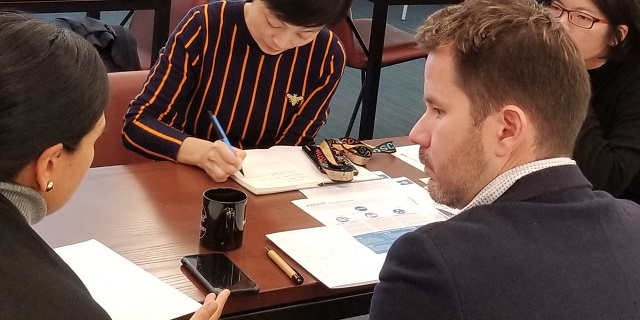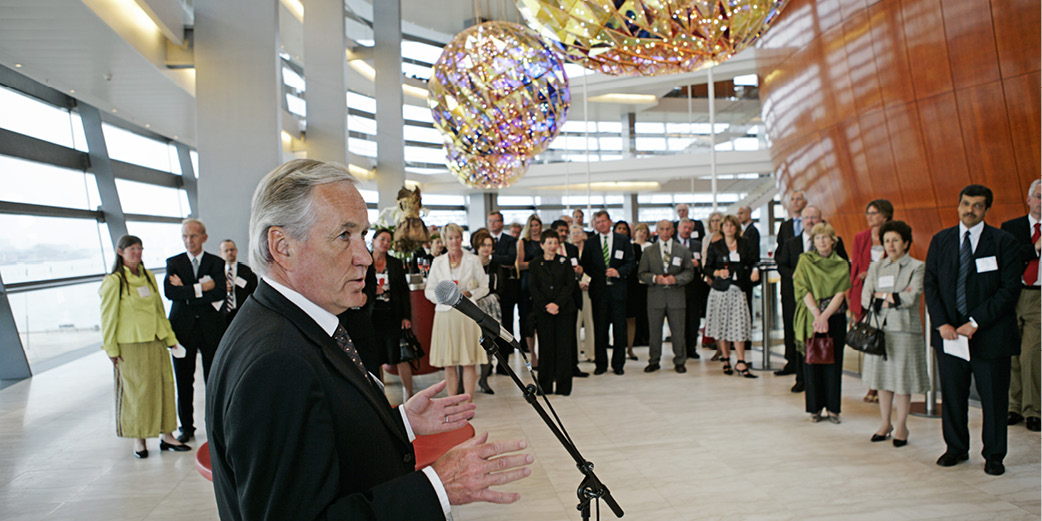Dennis Kozlowski Was Not a Thief
24 Feb. 2014 | Comments (0)
![]()
On January 17, Dennis Kozlowski will be released on parole by the State of New York after serving an 8 1/3 year sentence in the state’s tough prison system. Kozlowski is the former CEO of Tyco International. During the decade he headed the company (1992 – 2002), Tyco grew from a small New Hampshire conglomerate into a global giant operating in more than 100 countries with 250,000 employees and $40 billion in annual revenue. While some people recognize Kozlowski for his extraordinary success as a manager, many more remember him as the highly paid executive with an extravagant lifestyle, including his infamous $6,000 shower curtain, who was convicted of taking more than $100 million from Tyco.
Like many people, I read over and over again that Dennis Kozlowski was a bad man. The reports were consistent; Kozlowski was the root of the problems at Tyco. After Kozlowski was convicted in 2005, I began including case studies about the Tyco corporate scandal in the business ethics classes I taught. But each semester, I was troubled by the limited facts available. There was plenty of sensational hype, character attacks, and supposition, but not enough facts to make sense of Kozlowski’s conviction.
So I began researching the case. I contacted Dennis Kozlowski in the prison in upstate New York where he was housed and I asked him what really happened. Much to my surprise, he agreed to tell me. In addition to talking with Kozlowski, I gathered a mass of information—the transcripts of both of his criminal trials (the first ended in a mistrial) which totaled more than 28,000 pages, the evidence presented during the trials, SEC filings, hundreds of articles, financial statements, judicial decisions, and interviews with former Tyco insiders, including directors, CEOs, and other executives. I also spoke with Robert Morgenthau, the former Manhattan District Attorney who prosecuted Kozlowski and with the foreman of the jury that convicted him. As I dug into the case, I was shocked by what I found.
The Tyco scandal broke during an extraordinary time period in the US. Kozlowski was charged and convicted immediately after Enron and WorldCom imploded. In that environment, prosecutors focused on large corporations and their high-profile, highly paid executives. For example, Martha Stewart was indicted and convicted during the same time period. Interestingly, Kozlowski was prosecuted by a local district attorney. In all other major corporate scandals during that era, the defendants were charged with federal crimes and tried in federal court. In Kozlowski’s case, the federal government investigated, but declined to prosecute. Even though the feds found no criminal activity, the Manhattan DA pursued Kozlowski, charged him with state crimes, tried him in state court, and punished him in state prison. There was no club fed for Dennis Kozlowski.
In addition to the unusual prosecution, the evidence presented during the trials was unconvincing. Kozlowski was convicted of grand larceny for taking four large, unauthorized bonuses. The bonuses were calculated correctly, per a written compensation policy. So, the question was not whether the bonuses were earned, and not whether the amounts were correct, but whether the board of directors authorized the bonuses before they were paid, which was required under the policy. There was no record that the bonuses were approved in the Tyco board’s meeting minutes or in the compensation committee’s meeting minutes. However, the meeting minutes were completely unreliable. For example, compensation committee meeting minutes were prepared before meetings by someone who never attended the meetings. The board’s audit committee did not keep minutes at all until the problems began at Tyco in 2002. For some board of director meetings, there were no minutes, and there were several major decisions that were not documented in board minutes.
Approval of the bonuses was not found in meeting minutes, and the directors who testified during the trial either couldn’t recall approving the bonuses, or stated that they did not approve them. But like the meeting minutes, the directors’ testimony was unreliable. The directors needed Kozlowski to be convicted for a number of reasons, not the least of which was a half billion dollar golden parachute the company would owe Kozlowski if he was found not guilty.
As I examined the evidence, I became convinced that Dennis Kozlowski did not commit the crimes of which he was convicted, and for which he was imprisoned. At worst, Kozlowski made some poor business decisions that left him vulnerable to attack. He was the victim of failed corporate governance, a weak board, zealous prosecution, and bad timing. But he was not a thief.
Things are not always as they appear. The Tyco scandal has been attributed solely to Kozlowski’s character flaws. If we simplify our analysis, blame the failings of one individual and ignore the facts, we leave the door open for this tragedy to happen again, to another ambitious, successful manager. The truth matters, which is why I wrote a book about my findings. Anyone who is or aspires to be a corporate leader should know what happened to Dennis Kozlowski. His rise and fall is a cautionary tale – what happened to him could happen to anyone.
This blog first appeared on the Harvard Business Review on 1/7/2014.
View our complete listing of Strategic HR blogs.
-
About the Author:Catherine S. Neal

Catherine S. Neal, Esq. is an associate professor of business ethics and business law at the Haile/US Bank College of Business at the Northern Kentucky University. Her new book is …











0 Comment Comment Policy